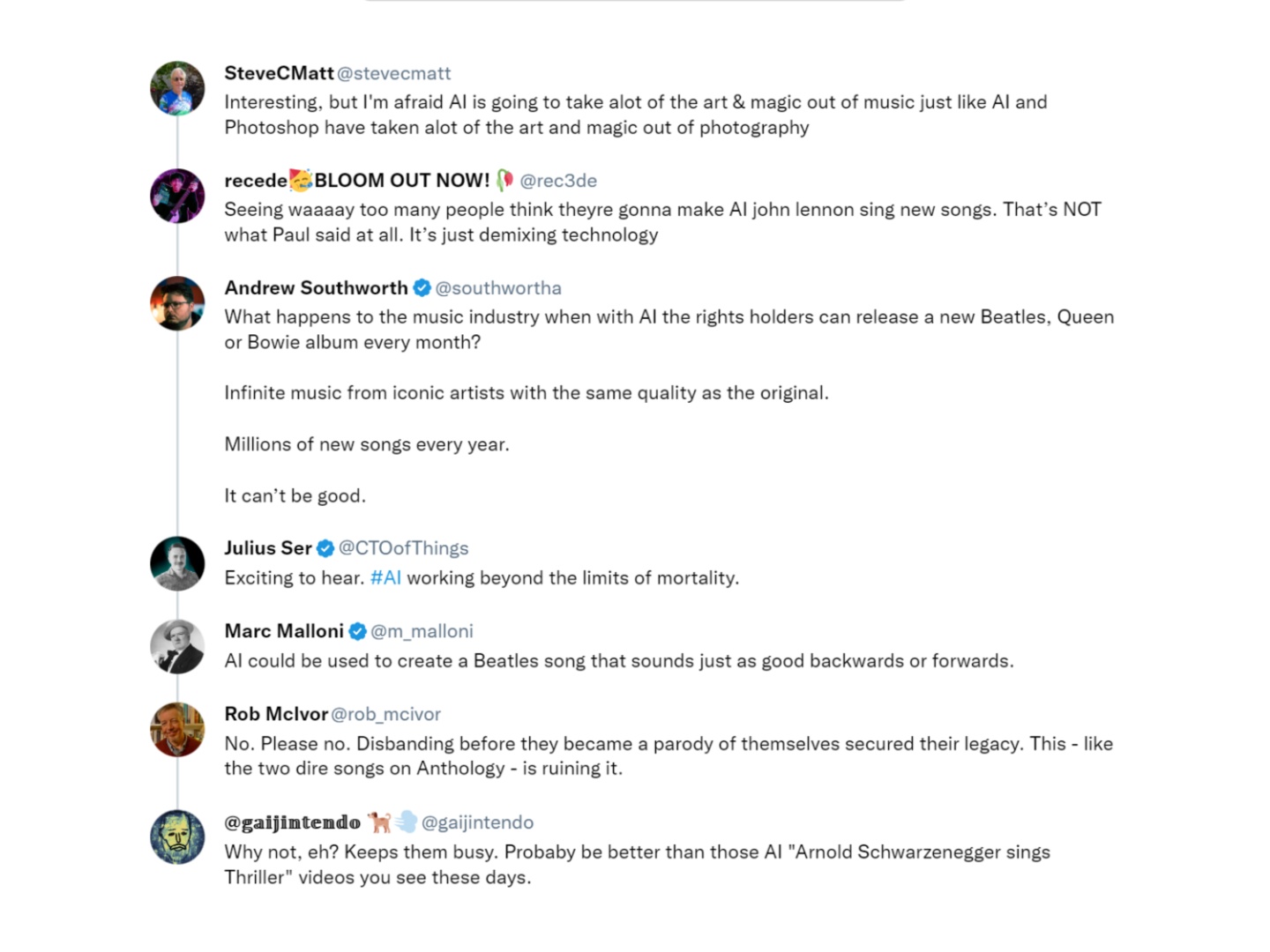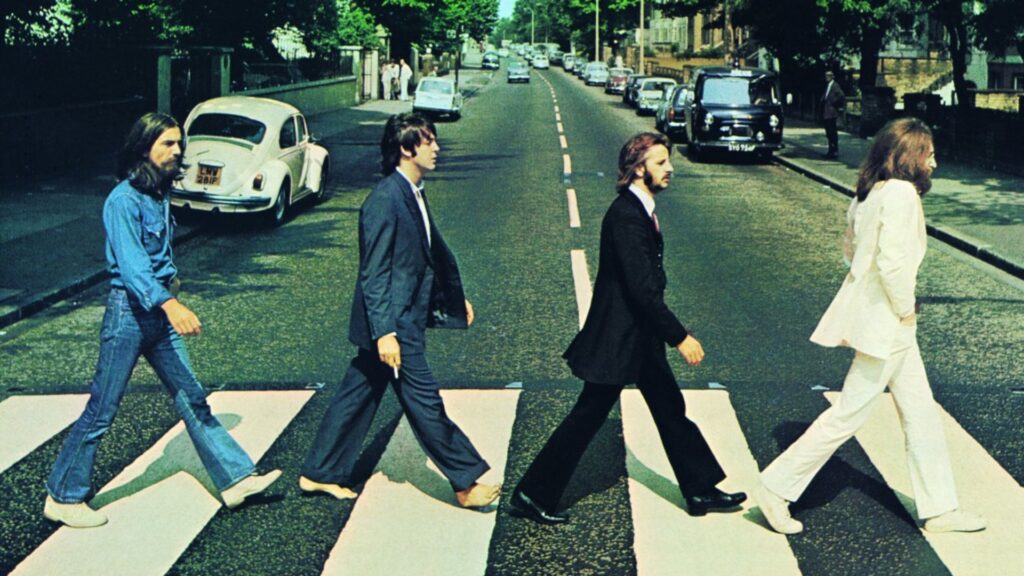Sir Paul McCartney has revealed that artificial intelligence (AI) is all set to breathe life into an unfinished Beatles song, making it their last record to be released. The groundbreaking development leverages AI to resurrect the vocals of the late John Lennon from an old demo recording. This brings new hope to an incomplete song that has remained a passion project for McCartney and Beatles fans for years.
Exploring the AI-driven ‘Last Beatles Record’
In an interview on BBC Radio 4 program Today, Paul McCartney discussed the possibility of the ‘last Beatles record’ resurrected by AI and slated for release in late 2023.
"When we came to make what will be the last Beatles record… We were able to get John's voice through AI."
Ahead of his exhibition at @NPGLondon of Beatles photos, Sir Paul McCartney spoke to @Marthakearney and revealed that a new record will be released this year.#R4Today
— BBC Radio 4 Today (@BBCr4today) June 13, 2023
The song in question is reportedly ‘Now and Then,’ originally recorded by John Lennon in his New York City apartment in 1978, just two years before his tragic death. The demo was captured on a cassette tape labeled “For Paul.” Lennon’s partner Yoko Ono gifted it to McCartney in 1994.
https://youtu.be/MIZrdXm9UTQ
Two other Lennon demos from the same collection, Free As A Bird and Real Love, were released in the mid-1990s. However, Now and Then remained incomplete as the late George Harrison objected to it due to the quality of Lennon’s vocals. Now, thanks to AI, the quality can be improved like never before.
How did AI improve John Lennon’s vocals?
AI technology has skyrocketed in recent years, with language models like ChatGPT becoming more mainstream than ever. Using these advancements, Paul McCartney was able to fix the original recording’s quality in Now and Then.
First, John Lennon’s vocals were meticulously separated from background noise. Later, it was restored to a state where they could be seamlessly integrated into the track as if they were freshly recorded.
For those concerned about how the new Beatles song uses A.I., this video from “Get Back” shows how A.I. and machine learning work:
The computer learns the sound of each instrument and separates them into different tracks, allowing for a higher-quality mix and end result. pic.twitter.com/oerPF7B4Vm
— The Beatles Earth (@BeatlesEarth) June 13, 2023
Director Peter Jackson was the first to implement this AI-powered process when he was making the Beatles’ docu-series ‘Get Back.’ This inspired Paul McCartney to use the same idea for putting out the last Beatles record with the help of AI.
Paul McCartney’s mixed feelings on AI-generated music
AI-generated music and art have been a subject of serious debate, and the thought hasn’t skipped Paul McCartney either. While he is enthusiastic about what AI could bring to music creation, he also acknowledged the underlying concerns.
There are plenty of AI-generated Beatles song covers all over the internet. People have used the tool to make seemingly original recordings of Lennon singing McCartney’s songs which have left the 80-year-old both excited and unsettled.
McCartney acknowledges that AI is the future but asks artists to remain cautious about its implications and its impact on their authenticity.
Social media reactions to McCartney’s Announcement
The upcoming release of this AI-powered Beatles song has sent mixed reactions across social media platforms. Users believe that it marks a significant moment in music history as it combines the timeless magic of the Fab Four with cutting-edge AI.

However, people worry that AI might take the art and magic out of music like how AI and Photoshop did with photography. Yet, Beatles fans still look forward to the release of the Fab Four’s final record. Maybe, all you need is love and a little help from AI.
You can share questions about Paul McCartney and the Beatles’ last record with AI. For more content, stay with us here at Spiel Times. Make sure you subscribe to our push notifications and never miss an update. You can also follow us on Spiel Anime, Twitter, Instagram, and YouTube. Until next time!
